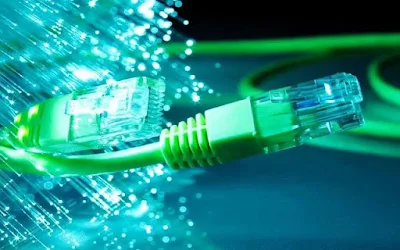Prepare to transition to the quantum internet and bid adieu to the traditional internet that we use on a daily basis. Discover the primary distinctions.

The quantum internet, the most futuristic version of the internet we use on a daily basis, is about to emerge. This innovation challenges our preconceived notions about what is feasible in communications and technology, in addition to promising amazing speed and almost impenetrable security. The quantum internet is a topic that is transforming the world of technology, and you will see how it differs from the classical internet here. Get ready for a fascinating journey into the future of communication.
When you think of the Internet, you probably think of browsing, sending emails, or making video calls. But there’s a new Internet under construction, one that promises to revolutionize not only how we communicate but also how we protect our information: the quantum Internet. Today we’ll explore what makes it different from the classical Internet, how it works, and why everyone is talking about it.
What is the quantum internet, and how is it different from the classical internet?
The classic Internet is based on bits, which are small packets of information represented as ones and zeros. These communications travel via fiber optic cables, satellites, and other means to connect us to any part of the world. This system is efficient and fast, but it is not without its vulnerabilities, such as the risk of hacking and digital espionage.
On the other hand, a quantum internet uses qubits instead of bits. Qubits can be in multiple states at the same time, thanks to a property known as quantum superposition. Furthermore, these elements can be entangled, meaning that any change in one affects the other instantly, no matter how far apart they are. This entanglement is the basis of quantum security, as any attempt to intercept a qubit changes its state, making any interference obvious.
Key advantages of quantum internet
The quantum internet promises to solve many of the current problems of the classical internet, including:
Virtually unhackable: By taking advantage of the laws of quantum mechanics, quantum communications cannot be intercepted without leaving a trace. This makes them ideal for protecting sensitive information.
Processing speed: Although still in development, the quantum internet could surpass current speeds, allowing complex calculations to be performed in seconds, which is impossible with current technologies.
- New technological possibilities: The new internet will allow quantum computers to be connected via secure networks, improving sectors such as artificial intelligence, scientific research, and logistics.
When will we see the quantum internet in action?
While the progress is promising, we are still far from seeing a widespread quantum internet. Currently, countries such as China, the United States, and the Netherlands are leading the way in developing such networks and conducting tests in controlled environments. For example, urban quantum networks have already succeeded in connecting devices over distances of up to 100 kilometers, using technologies such as optical fibers and quantum repeaters.
In Europe, initiatives such as EuroQCI are seeking to create quantum communications infrastructures that integrate terrestrial and space-based elements. This will open the door to applications in key sectors such as banking, healthcare, and transportation.
Will the quantum internet replace the classical internet?
Not quite. In fact, the quantum internet will complement the classical internet, adding a layer of security and speed for specific cases. This means that each will coexist with the other, each performing different functions depending on the needs.
The arrival of the quantum internet represents a before and after stage in the evolution of communications technology. While it will take some time before it becomes an everyday reality, its development is already opening up new possibilities for how we connect and protect our information. Are you ready for this quantum leap?

